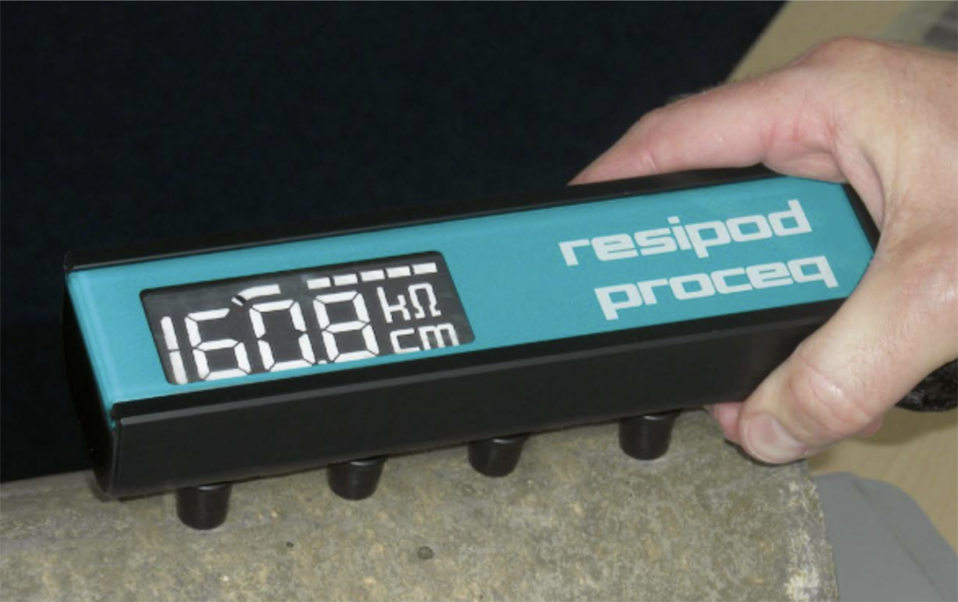Proceq Resipod
Resistivity Meter
The Proceq Resipod Resistivity Meter is available in two versions with industry standard 50 mm (1.9”) contact spacing and 38 mm (1.5”) contact spacing, the Resipod has a number of unique features. It is the most accurate surface resistivity meter available.
In 2011 the American Association of State Highway and Transportation Officials (AASHTO) became the first standards body
to define permeability classes based on resistivity measurements (TP95-11 Standard Method of Test for Surface Resistivity
Indication of Concrete’s Ability to Resist Chloride Ion Penetration).
The Proceq Resipod Resistivity Meter is the only fully integrated four point Wenner Probe on the market with on-board memory and a USB connection to a PC. It is supported by Resipod Link software, making analysis of the results a simple matter. The standard probes can be removed to allow the user to attach custom probe configurations or a variable spaced probe. The software allows the setting of the probe width as required.
The Proceq Resipod Resistivity Meter is a fully integrated 4-point Wenner probe, designed to measure the electrical resistivity of concrete in a completely non-destructive test. It is the most accurate instrument available, extremely fast and stable and packaged in a robust, waterproof housing designed to operate in a demanding site environment. The Resipod is the successor of the classic CNS Farnell Resistivity Meter.
Surface resistivity measurement provides extremely useful information about the state of a concrete structure. Not only has it been proven to be directly linked to the likelihood of corrosion and the corrosion rate, recent studies have shown that there is a direct correlation between resistivity and chloride diffusion rate and even to determination of early compressive strength. This makes it one of the most versatile NDT methods for concrete.

